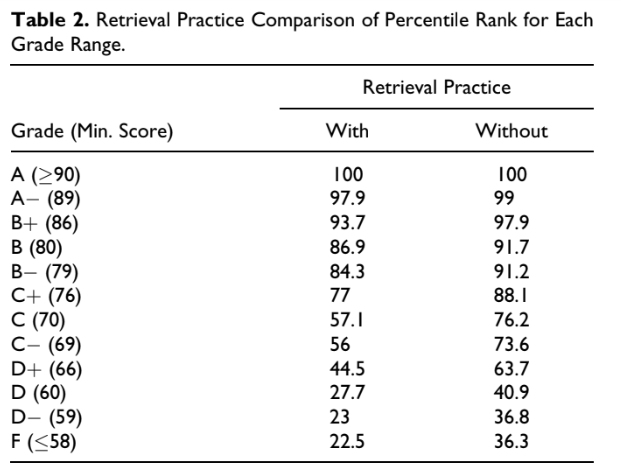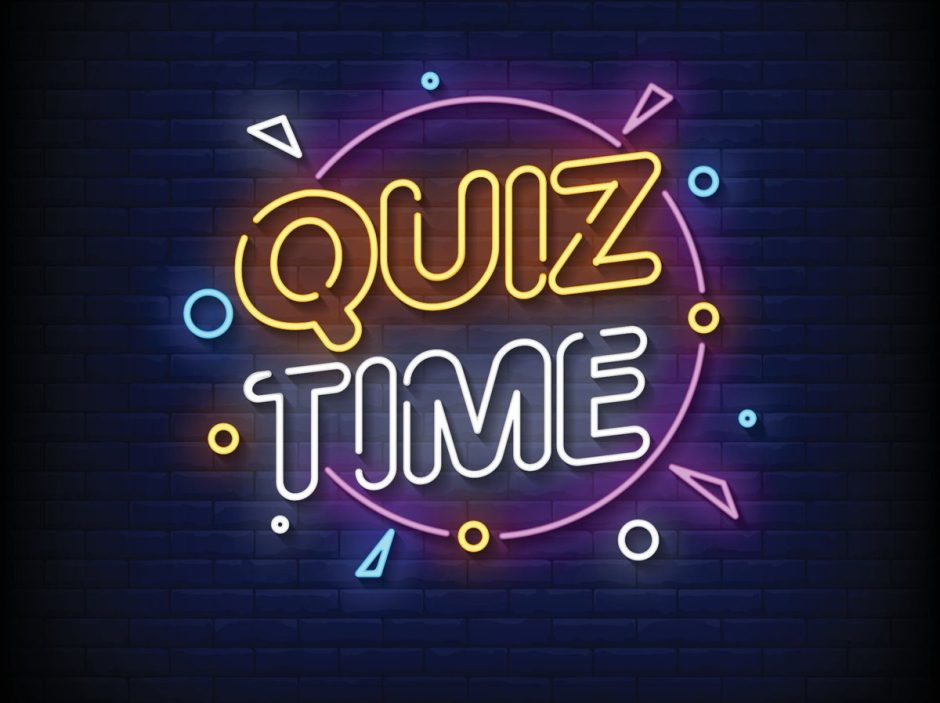More evidence that “distributing low stakes multiple-choice questions throughout lectures is effective for increasing test performance.” However, that was not the focus on this paper. The objective was to determine elements and procedures from the testing effect literature for practical application, devise a method for feasibly and sustainably implementing testing effect methods in practice, and determine if a simple way to incorporate retrieval practice into an existing introduction to psychology course was sufficient to observe testing effects.
Not to miss the opportunity, let’s lift some of the applied testing effect research insights she highlights:
- Misunderstandings at retrieval practice should be corrected using feedback.
- Testing effects are more likely when material is coherent and logically ordered for the learner and there is a sufficient quantity of retrieval practice questions.
- Retrieval practice for loosely integrated or incoherent material may require retrieval practice questions explicitly designed to facilitate of elaborative processing.
Applied research is fraught with conflicts, as Heitmann et al (2021) pointed out. “Workload, resource, and disruption to routine” become “deterrents in practice.” Control conditions providing a learning advantage to some students over others, unfair. Other solutions are considered “overly burdensome, and therefore, unsustainable in practice.” Lastly there is the unpredictability of classrooms. How to overcome these hurdles?
Method
384 students, four classes. Delayed tests. Seven multiple choice unit quizzes of varying lengths spanning 15 topics. Printed quizzes, machine scored form.
Retrieval practice questions: Short blocks of four to seven multiple choice questions were added to all presentations – every 15-20 mins. Repeated questions were identical to those on the unit quiz, new questions were different from the quiz.
Questions were read aloud with orally volunteer answers followed by a quick hand poll. Retrieval practice questions were not accessible outside of class.
Results
As you know, students in the retrieval practice condition scored significantly higher. More students achieved higher grades averages with retrieval practice.

No differences were observed between repeated and new questions, both having an equivalent and significant advantage over classes that had no retrieval practice.

Two areas Q2 (health) and Q6 (biopsychology and perception) did not report a testing effect. The reason proposed, the complexity and low integration of the topics.
What do we learn?
The methodology was reported as both “feasible and sustainable.” 4-7 MCQs added to presentations every 15-20 mins. Simple methodology, verbal responses, minimal workload, no additional resources, easily sustained / updated. (Even easier with classroom.remembermore.app #retrievalpractice.
More students achieved higher grades averages with retrieval practice.
Shobe (2022)
And there is still the opportunity to make these questions available to the learners who are motivated to access them beyond the classroom. It is also possible to personalise the quizzing.



